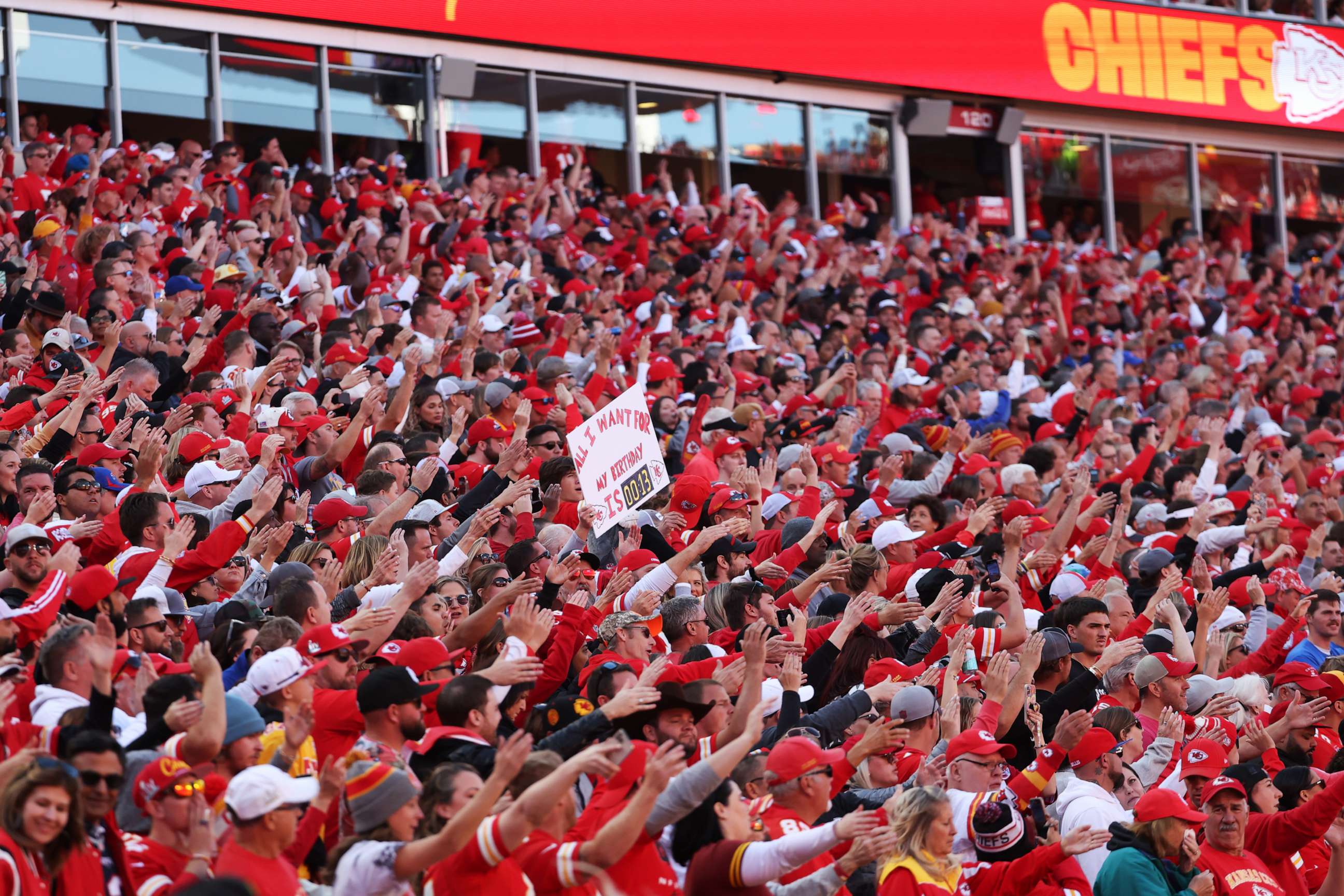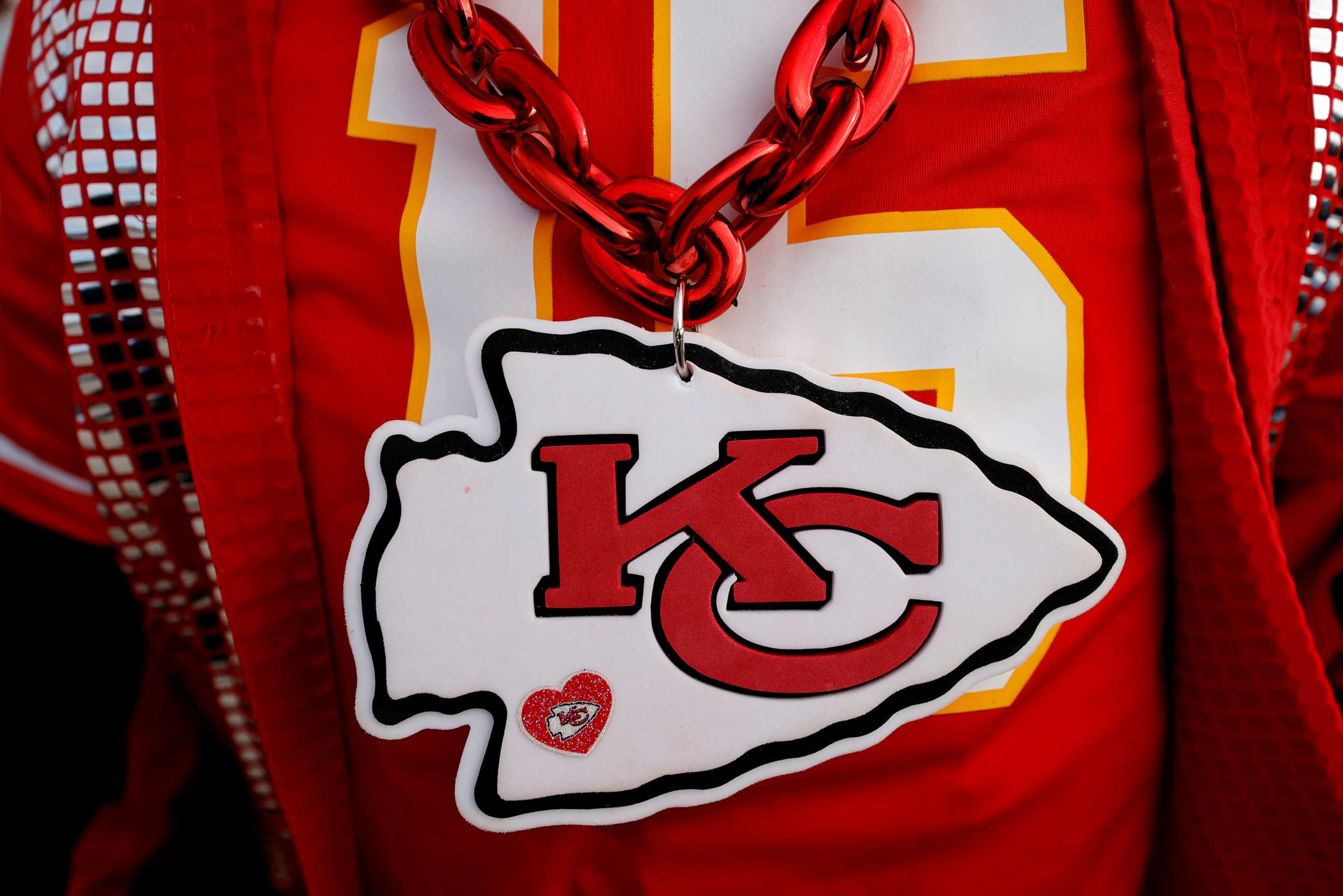Native American advocates protest Kansas City Chiefs name ahead of Super Bowl LVII
Native American advocates calling for the “immediate retirement” of team’s name.
The Kansas City Chiefs are facing scrutiny again ahead of Super Bowl LVII, with Native American advocates calling for the “immediate retirement” of the NFL team’s name, logo, the team’s “war chant” and the “tomahawk chop.”
“There’s no respectful way to mascot us or belittle us and use us for profit,” said Amanda Blackhorse, founder of Arizona to Rally Against Native Mascots (Az Rally), during a press conference on Thursday outside the State Farm Stadium in Glendale, Arizona.
“I’m confident the Kansas City team and the NFL hear the resistance,” Blackhorse added. “After all, groups like Not in Our Honor and the Kansas City Indian Center protest every single home game.”
Blackhorse is set to rally with a group of advocates outside the State Farm Stadium in Glendale, Arizona as the Kansas City Chiefs face off against the Philadelphia Eagles in Super Bowl LVII.
“The anti-Native mascot movement has always been about the betterment of our Native people, not hatred towards others who are football fans,” said Blackhorse on Thursday. “We want to live in a world where our children can attend school and feel included and not met with reenactments of fake war dances on the football field.”
According to the website of the Kansas City Chiefs, the team was named for H. Roe Bartle, the mayor of Kansas City in the early 1960s, who was nicknamed “Chief” and played a major role in bringing the Dallas Texans to Kansas City in 1963.

After the team moved from Texas, they were renamed the Kansas City Chiefs.
“While the origin of the team's name has no affiliation with American Indian culture, much of the club's early promotional activities relied heavily on imagery and messaging depicting American Indians in a racially insensitive fashion,” the team's website says. “Over the course of the club's 60-plus-year history, the Chiefs organization has worked to eliminate this offensive imagery and other forms of cultural appropriation in their promotional materials and game-day presentation.”
After establishing an American Indian Community Working Group in 2014, the team banned headdresses and face paint at games and retired the use of Warpaint as an ambassador of the Chiefs, among other things.
"Really going back seven years ago when we started the dialogue with our American Indian working group here in Kansas City, it was a real learning experience for the organization…I think the important thing on the entire subject has been how important education has been," the Kansas City Chief's Chairman and CEO Clark Hunt said in an undated statement on the team's website. "It's something that's important to the American Indians, both from a cultural heritage standpoint and just preserving their traditions, but it's also a way of educating our fans that these things are offensive to them. We've now expanded our relationship beyond just the group in the Midwest that we've been working with."
ABC News reached out to the Kansas City Chiefs for additional comment.
According to a FiveThirtyEight analysis, hundreds of schools across the country still use Native Americans as their team mascots -- monikers widely seen as racist and dehumanizing to the Native American community.

The use of Native American imagery like "tomahawk chop" in cheering on sports teams with Native American names or mascots -- from the high school level to the pros -- has come under scrutiny and was spotlighted when advocates protested its use as the Atlanta Braves competed in the World Series in Nov. 2021
The tomahawk is an axe that is native to the indigenous people of North America and at Kansas City Chiefs games many fans make the chopping gesture as they cheer on the team.
For decades, advocates for Native American rights had been working relentlessly to convince the teams to change their names -- from filing lawsuits to protests to applying pressure on teams and their sponsors.

But it was not until an immense social justice movement swept the nation in the summer of 2020 after the police killing of George Floyd -- an unarmed Black man from Minneapolis -- that some of the most high profile teams relented.
Following decades of backlash from the Native American community, Cleveland’s Major League Baseball team aannounced in July 2021 that the franchise will change its name from the Indians to the Guardians.
In a Dec. 2020 interview with the Associated Press, Commander's team owner Paul Dolan cited the killing of George Floyd by police in Minneapolis as an “awakening or epiphany” that contributed to the team’s decision to change the name, along with conversations with the Native American community.
Before deciding to change their name the team stopped using the Chief Wahoo logo on their uniforms in 2019.
And after insisting in 2013 that a name change will “never” happen, Dan Snyder, owner of the Washington Redskins, announced in July that the team would change its name to the Washington Football Team, after FedEx, which has naming rights to the stadium, requested a change. The team has since been named the Washington Commanders.




